Understanding Flea Biology and Behavior
Flea Life Cycle: Unveiling the Stages
Understanding the flea life cycle is crucial in the battle against these pesky invaders. Fleas go through four distinct stages: eggs, larvae, pupae, and adults. Each stage is unique and presents different challenges for control. Flea eggs are often laid on the host but fall off into the environment, where they hatch into larvae. These larvae feed on organic debris before developing into pupae, which are protected by a cocoon. Adult fleas emerge from the cocoon and seek out a host, continuing the cycle. To effectively prevent flea infestations, it's important to target all stages of the life cycle, not just the adults. This comprehensive approach ensures that fleas are tackled at every developmental phase, reducing the likelihood of a recurring infestation.
Flea Host Preferences: Why Pets Are at Risk
Fleas have a notorious preference for furry hosts, which puts our pets at high risk for infestations. The warm body temperature and accessible blood supply make pets ideal hosts for these parasites. Pets' behavior, such as playing outdoors and interacting with other animals, can also contribute to the spread of fleas. Once a pet brings fleas into the home, the infestation can quickly escalate as fleas lay eggs and multiply. It's critical to understand this host preference to protect our beloved animals and our living spaces from the discomfort and health risks associated with flea bites.
Effective Flea Prevention Strategies
Choosing the Right Flea Treatment: Spot-Ons, Oral Medications, and More
When it comes to flea prevention, pet owners have a variety of treatment options. Spot-on treatments are applied directly to the pet's skin and provide month-long protection. Oral medications, which can come in pill or chewable form, are ingested by the pet and work internally to kill fleas. Natural alternatives, such as herbal remedies, are also gaining popularity. Each treatment has its pros and cons, ranging from ease of use to duration of effectiveness. Some treatments may also have side effects or may not be suitable for all pets. It's essential to consult with a veterinarian to choose the right flea treatment that is safe and effective for your specific pet.
Environmental Control: Sanitizing Your Home
Environmental control is a key component in preventing flea infestations. Sanitizing your home involves more than just cleaning; it requires a targeted approach to eliminate fleas at every life stage. Regular vacuuming can help remove flea eggs, larvae, and pupae from carpets and upholstery. Washing pet bedding in hot water kills any fleas present. Flea sprays can be used in areas where pets spend time to kill and repel fleas. By maintaining a clean environment and using the appropriate products, you can create a hostile environment for fleas and prevent them from taking hold in your home.
Natural Flea Prevention and Control
Essential Oils and Plant-Based Solutions
Natural flea repellents, such as essential oils, offer a chemical-free alternative for those seeking a more holistic approach to flea control. Certain essential oils, like lavender, peppermint, and lemongrass, are known for their flea-repelling properties. However, it's important to use them correctly and safely, as some essential oils can be toxic to pets if not diluted properly. Always consult with a professional before applying these natural solutions, ensuring they are safe for use around your pets and effective in keeping fleas at bay.
DIY Flea Prevention: Homemade Sprays and Collars
For pet owners who prefer the DIY route, homemade flea sprays and collars can be an effective and economical choice. You can create sprays using a combination of water, vinegar, and certain safe essential oils. Homemade flea collars can be made by applying flea-repelling oils to a bandana or pet collar. These natural methods can serve as a supplementary measure to more traditional flea prevention methods. While they may not be as potent as commercial products, they can still provide a layer of protection against fleas without the use of harsh chemicals.
Flea Prevention in Outdoor Spaces
Landscaping to Deter Fleas: Plants and Maintenance
Landscaping your garden with flea-repelling plants is a natural way to deter these pests from your outdoor spaces. Plants such as lavender, mint, and chrysanthemums have natural properties that repel fleas. In addition to planting flea-repellent flora, regular maintenance of your yard is essential. Keeping the grass trimmed, removing debris, and clearing out areas where wildlife may nest can reduce the likelihood of flea infestations. A well-maintained yard not only looks great but also serves as a first line of defense against fleas.
Safe Outdoor Treatments: Sprays and Yard Care
When it comes to treating outdoor areas for fleas, safety is paramount. Choosing the right outdoor flea treatments, such as yard sprays, can help keep your outdoor spaces flea-free without posing risks to pets or beneficial insects. It's important to select environmentally friendly treatments and apply them according to the manufacturer's instructions. Regular yard care, including disposing of clippings and leaves where fleas might hide, also plays a vital role in controlling flea populations. By combining safe treatments with diligent yard maintenance, you can enjoy your outdoor areas without the worry of flea infestations.
Understanding and Addressing Flea Allergies in Pets
Recognizing Flea Allergy Dermatitis (FAD) in Pets
Flea Allergy Dermatitis (FAD) is a common and uncomfortable condition for pets who are allergic to flea saliva. Recognizing the signs of FAD is crucial for the well-being of your furry friend. Symptoms may include excessive scratching, biting, and hair loss, primarily around the base of the tail. The skin may also become red and inflamed, leading to secondary infections. Preventing fleas is especially important for pets with FAD, as even a single flea bite can trigger a severe reaction. By being vigilant and proactive in flea control, pet owners can help alleviate the discomfort associated with this allergy.
Treatment Options for Flea Allergies
Treatment for pets with flea allergies involves both medical intervention and supportive home care. Veterinarians may prescribe medications to control itching and inflammation, as well as antibiotics for any secondary skin infections. Additionally, implementing a strict flea control regimen is essential to minimize exposure to flea bites. This includes regular use of preventive treatments, environmental control measures, and possibly natural remedies. By combining these strategies, pet owners can help their pets find relief from the symptoms of flea allergy dermatitis and improve their quality of life.
At Yates-Astro Termite & Pest Control in Savannah, GA, we understand the challenges that fleas present to your home and your pets. Our team of experts is dedicated to providing effective, safe, and environmentally friendly solutions to keep your living spaces flea-free. Whether you're dealing with a current infestation or looking to prevent one, we're here to help. Contact us today to learn more about our comprehensive pest control services and how we can assist you in maintaining a healthy, happy home for you and your pets.

